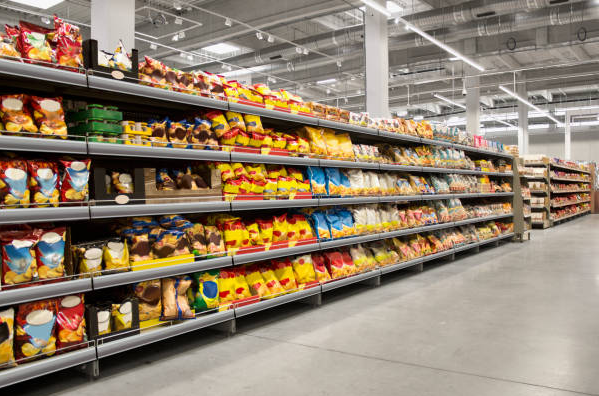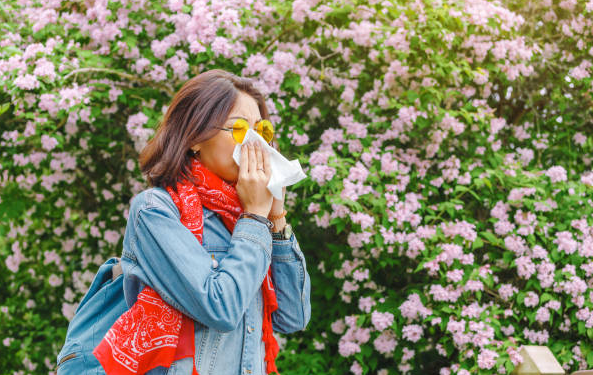Traveling for business can be both exciting and challenging, especially when you have food allergies or dietary restrictions to consider. Managing your dietary needs while on a business trip is crucial for your well-being and productivity. To ensure a smooth and enjoyable experience, it’s essential to plan ahead. Start by researching restaurants and food options at your travel destination that can accommodate your dietary requirements. Contacting the restaurant in advance can help you communicate your needs and ensure a safe meal. Additionally, consider carrying safe, non-perishable snacks with you, just in case suitable options are limited. Informing your colleagues or hosts about your dietary restrictions is also a good idea, as they can assist in finding appropriate dining options during your stay. By taking these steps and being proactive, you can effectively manage your food allergies or dietary restrictions while on business trips, allowing you to focus on your work and make the most of your travel experience.
1. Understanding Food Allergies
Food allergies are adverse reactions triggered by specific foods, often causing immune system responses. Common food allergens include peanuts, tree nuts, shellfish, fish, milk, eggs, soy, and wheat. Individuals with food allergies may experience a range of symptoms, from mild discomfort to severe anaphylaxis, a potentially life-threatening condition.
2. Researching Destination Options
Before embarking on a business trip, it is essential to research destination options with regard to food allergen awareness and availability of allergy-friendly accommodations and dining options. Look for hotels and restaurants that explicitly cater to individuals with dietary restrictions or offer customizable menu options.
3. Communicating with Airlines and Accommodations
When booking flights and accommodations, it is crucial to inform the airline and hotel about your food allergies. Airlines often provide special meals for individuals with dietary restrictions, ensuring a safe and suitable in-flight dining experience. Additionally, hotels can assist in accommodating specific dietary needs during your stay.
4. Packing Essential Medications and Emergency Plans
Always carry your prescribed medications, such as antihistamines or epinephrine auto-injectors, in your carry-on luggage. Ensure they are easily accessible in case of an allergic reaction. It is also advisable to have an emergency plan in place and share it with your travel companions or colleagues.
5. Eating Safely at Restaurants and Establishments
When dining out, inform the waitstaff about your food allergies and inquire about the ingredients used in the dishes. Request allergen-free meal options or modifications, and emphasize the severity of your allergies. Be cautious of cross-contamination risks in kitchens and utensils.
6. Exploring Local Grocery Stores and Markets

To have more control over your meals, consider visiting local grocery stores and markets. Purchase fresh ingredients to prepare meals in your accommodation, ensuring a safer and more allergen-controlled dining experience.
7. Engaging with Colleagues and Clients about Food Allergies
It is essential to communicate your dietary restrictions with colleagues and clients before business meals or events. Explain your allergies and potential reactions, and suggest allergen-friendly venues to ensure everyone’s comfort and safety.
8. Making Use of Technology and Apps
Leverage technology to assist you in managing food allergies while traveling. Several mobile apps can help locate allergy-friendly restaurants, translate ingredients, or provide guidance on safe food choices in different countries.
9. Overcoming Language Barriers
Language barriers can make it challenging to communicate your dietary restrictions effectively. Carry allergy translation cards or learn essential phrases in the local language to express your allergies and dietary needs clearly.
10. Dealing with Unexpected Reactions
Despite precautions, allergic reactions can still occur. Be prepared to respond promptly by having your emergency medications easily accessible. If needed, seek medical assistance immediately.
11. Adapting to Different Cuisines
Business trips often involve exposure to various cuisines. Familiarize yourself with the local cuisine and ingredients to make informed choices. Research traditional dishes that are more likely to be allergen-free or easily modified.
12. Ensuring Safe Food Handling and Preparation
If you have the opportunity to prepare your meals or snacks, ensure safe food handling and preparation practices. Wash hands thoroughly, separate allergenic ingredients, and use clean utensils and cutting boards to avoid cross-contamination.
13. Staying Mindful of Cross-Contamination Risks
Even when dining at allergy-friendly establishments, cross-contamination risks exist. Educate yourself on safe food handling practices and ask questions about kitchen protocols to minimize the chances of accidental exposure.
14. Seeking Medical Assistance if Needed
In case of severe allergic reactions or uncertain symptoms, do not hesitate to seek medical assistance. Know the local emergency numbers and locate nearby hospitals or clinics in your travel destination.
Conclusion
Managing dietary restrictions while on business trips requires careful planning, effective communication, and heightened awareness. By understanding your food allergies, researching destinations, communicating with airlines and accommodations, and being proactive in your choices, you can ensure a safer and more enjoyable travel experience. Remember to stay prepared, prioritize your health, and communicate openly about your dietary needs.
FAQs
1. Can I trust restaurant staff to accommodate my food allergies?
While most restaurants strive to accommodate dietary restrictions, it’s crucial to communicate your allergies clearly and ask about their protocols for allergen-free meals. Always be cautious and inform the waitstaff about the severity of your allergies.
2. What should I do if I accidentally consume a food allergen while traveling?
If you accidentally consume a food allergen and experience symptoms, promptly take your prescribed medications and seek medical assistance if necessary. It’s important to act quickly to mitigate the allergic reaction.
3. Are there any mobile apps to assist with managing food allergies while traveling?
Yes, there are several mobile apps available that can help you find allergy-friendly restaurants, translate ingredients, and provide guidance on safe food choices in different countries. Research and download these apps before your trip.
4. Should I carry food allergy translation cards?
Carrying food allergy translation cards can be helpful, especially when language barriers exist. These cards provide essential information about your allergies in the local language, making it easier to communicate your needs to restaurant staff.
5. How can I ensure safe food handling and preparation while traveling?
If you have the opportunity to prepare your meals while traveling, prioritize safe food handling practices. Wash hands thoroughly, separate allergenic ingredients, and use clean utensils and cutting boards to prevent cross-contamination.


